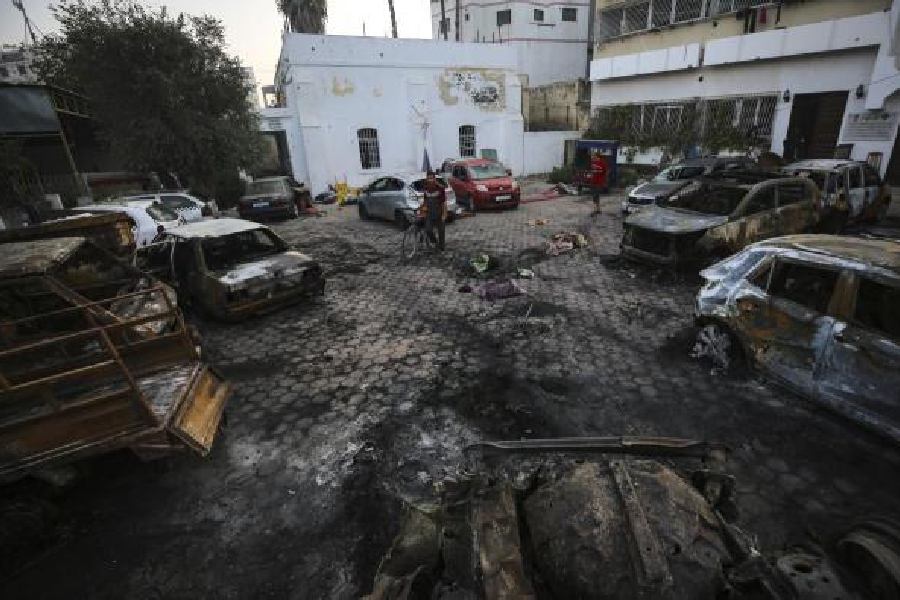Russia and China on Friday vetoed a US resolution at the UN Security Council that called for “an immediate and sustained ceasefire” as part of a deal in the Gaza Strip, rejecting a measure that included some of Washington’s strongest language since the start of the war.
The US-backed resolution reflected the Biden administration’s growing frustration with Israel’s conduct in the war and had been intended to put pressure on Israel not to attack the southern Gaza city of Rafah, where hundreds of thousands of civilians are sheltering. But international divisions, including over Washington’s own use of its veto power in the council and its refusal to call for a permanent ceasefire, appeared to doom the resolution on Friday.
Eleven members voted in favor of the resolution, but three nations, including two permanent members with veto power, Russia and China, voted against it. Algeria also voted against the measure, and Guyana abstained.
Russia’s ambassador to the UN, Vasily Nebenzya, had denounced the US-backed measure before the vote, calling it a “hypocritical initiative” and “a diluted formulation” regarding a ceasefire.
“To save the lives of peaceful Palestinians, this is not enough,” he said. The draft, he asserted, was written with US political interests in mind, to “ensure the impunity of Israel” and to undermine the authority of the council.
He urged council members to vote against the resolution, saying, “We cannot allow the Security Council to become an instrument in advancement of Washington’s destructive policy in the Middle East.”
After the vote, US ambassador Linda Thomas-Greenfield defended the resolution, saying it was brought forward “in good faith after consulting with all council members and after multiple rounds of edits”.
She said Russia and China vetoed the resolution for two reasons: They had refused to condemn Hamas, and they “simply did not want to vote for a resolution that was penned by the United States because it would rather see us fail than to see this council succeed”.
Thomas-Greenfield said the US draft would have put the Security Council’s weight behind diplomatic efforts “to secure an immediate and sustained ceasefire.
New York Times News Service











